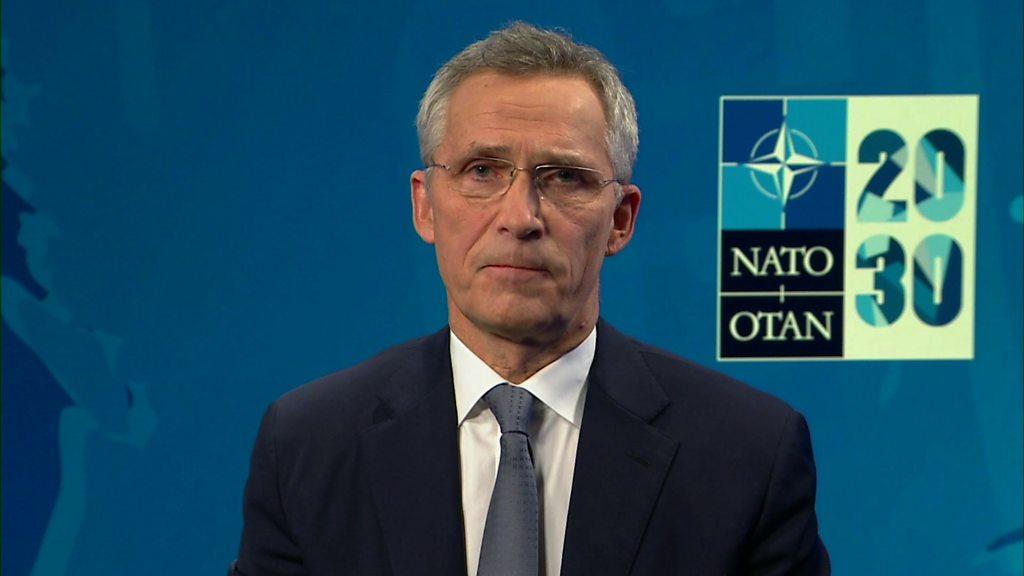Australia to shut embassy in Afghanistan over violence fears
- Published
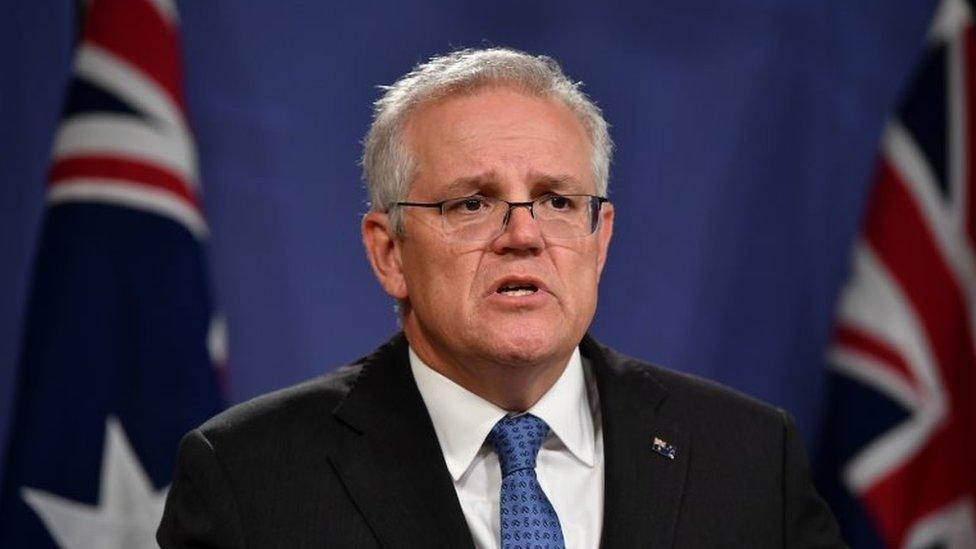
Australian Prime Minister Scott Morrison made the announcement in a statement issued on Tuesday
Australia has said it will shut its embassy in Afghanistan's capital Kabul on Friday, as the withdrawal of international troops proceeds.
In a statement, external, Canberra talked of "an increasingly uncertain security environment" in the country.
It said Australian diplomats would visit Afghanistan regularly - but would be based elsewhere in the region.
Afghanistan said it hoped the closure would be "short-lived" and Australia would continue its permanent presence.
"The closure of an embassy is also a cause for concern," it added in a statement. "One question that may come to the minds of some people is: 'Why is Australia leaving Afghanistan in such a situation and why did it spend 20 years in this country?'".
There are fears that the withdrawal of the US-led Nato force could plunge Afghanistan back into a full-scale war.
In April, US President Joe Biden said American troops would leave by 11 September, after 20 years of military involvement in Afghanistan. "It is time to end America's longest war," Mr Biden said.
At least 2,500 US troops are part of the 9,600-strong Nato Afghan mission.
Over the past two years, Australia has reduced the number of its troops in Afghanistan from more than 1,500 to about 80.
US and Nato officials have recently said that the Taliban, a hard-line Islamist movement, have so far failed to live up to commitments to reduce violence in Afghanistan.
'Australia remains committed'
The Australian statement was issued jointly by Prime Minister Scott Morrison and Foreign Minister Marise Payne on Tuesday.
"We will close our Embassy building on 28 May 2021," the document said, adding that "it is Australia's expectation that this measure will be temporary and that we will resume a permanent presence in Kabul once circumstances permit.
"Australia remains committed to the bilateral relationship with Afghanistan, and we will continue to support the stability and development of Afghanistan in concert with other nations."
The statement did not say where in the region Australian diplomats would be relocated.

A nervous move

This announcement throws up a number of questions. The speed for starters - the embassy is due to close by the end of this week. Why so fast?
What does that mean for Canberra's commitment to peace in Afghanistan? Just four weeks ago, the foreign minister was in Kabul reiterating her government's support.
What's clear, however, is that there's a great deal of nervousness about the potential for increased violence - and not much confidence, it seems, in the ability of the Afghan leadership or troops to stop it.
With an emboldened Taliban movement that sees the withdrawal of coalition troops as a victory, the Afghan government will need all the help it can get from its allies. In Australia's case, for now, it will have to be from a distance.

Is peace with the Taliban possible? (2019 report)
A deal signed in February last year said the US and its Nato allies would withdraw all troops in 14 months if the Taliban upheld its promises, including not allowing al-Qaeda or other militants to operate in areas it controlled and proceeding with national peace talks.
As a condition of starting negotiations with the Afghan government, the Taliban also demanded the release of thousands of their men in a prisoner swap.
Although the group stopped attacks on international forces as part of the historic agreement, it has continued to fight the Afghan government.
Earlier this month, 60 people, mostly girls, were killed in explosions outside a secondary school in Kabul.
No-one has admitted carrying out the attack in Dasht-e-Barchi, an area often hit by Sunni Islamist militants.
The Afghan government blamed the Taliban for the attack, but the group denied involvement.
- Published14 April 2021
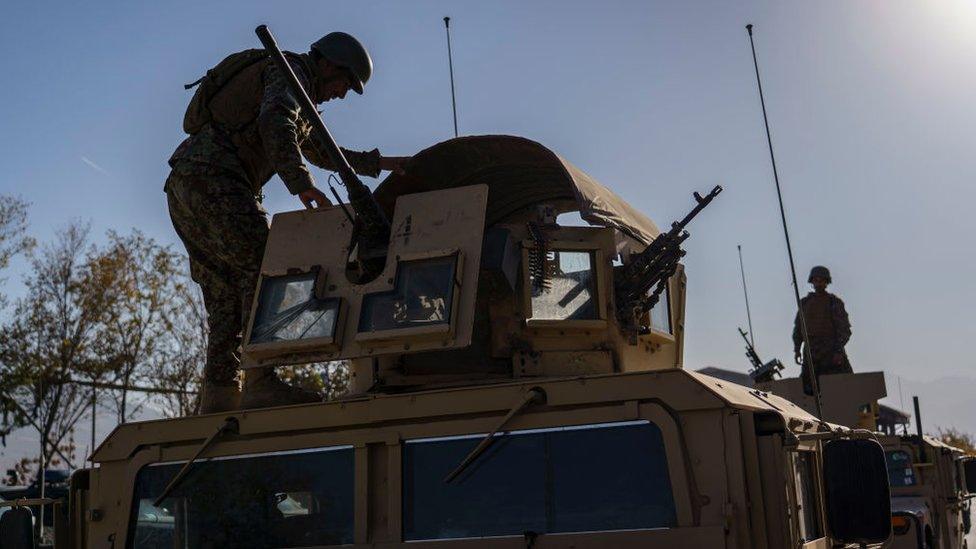
- Published14 April 2021
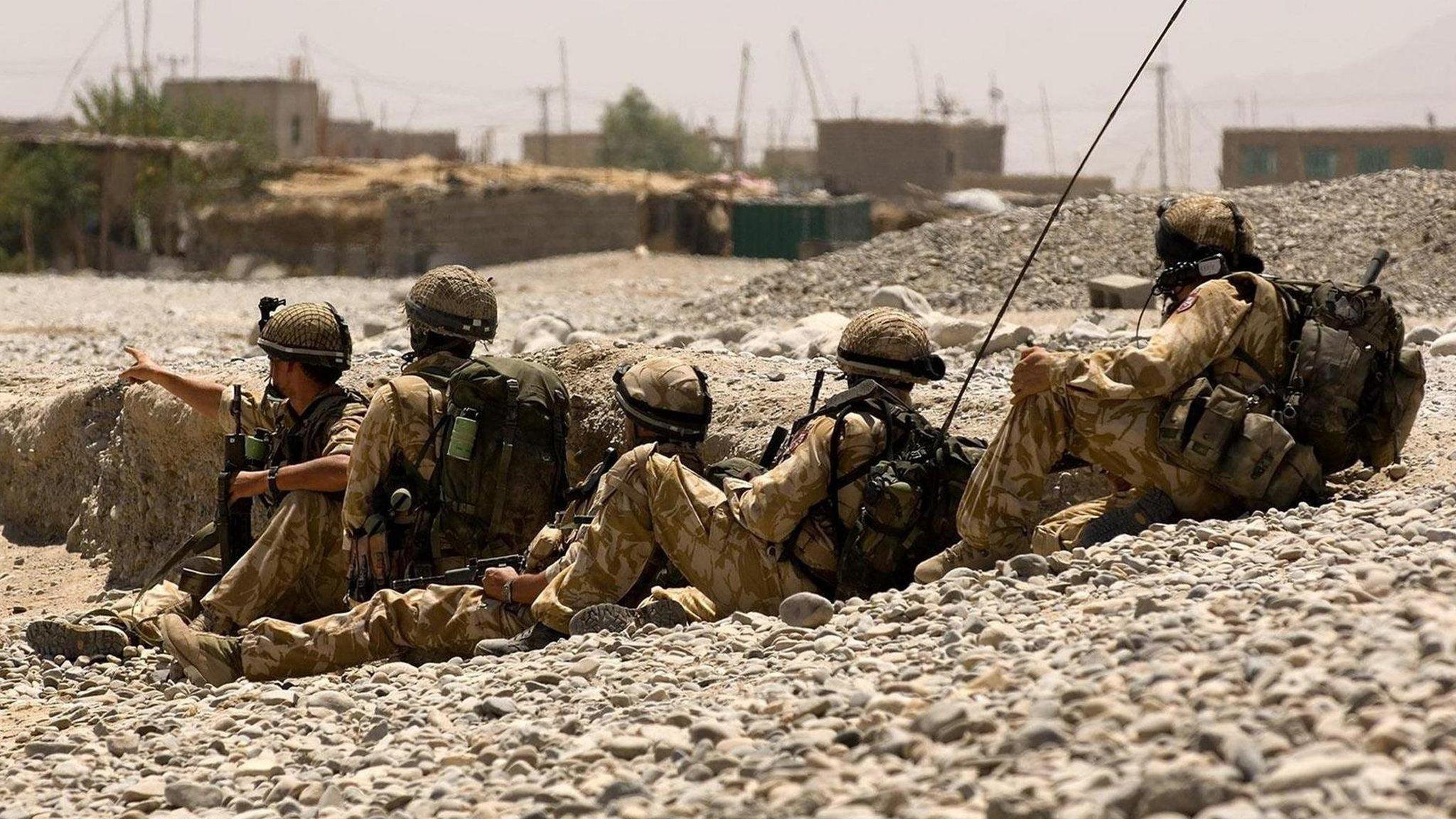
- Published9 March 2021

- Published28 February 2021
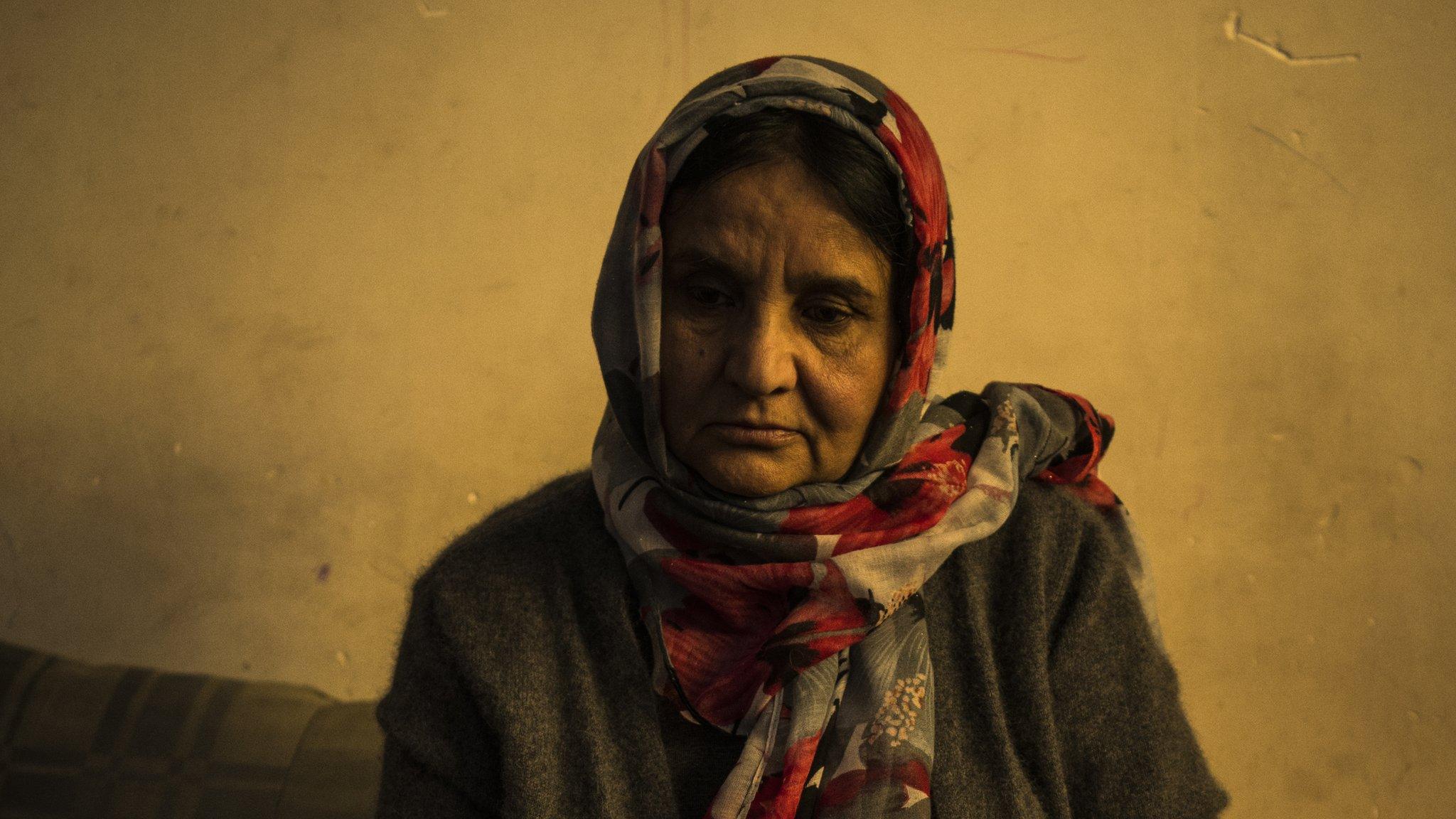
- Published30 November 2020
